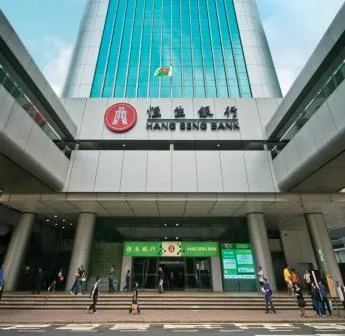
3 troubling things that may adverse Hong Kong banks' future operations
Their 16.5% exposure to China concerns analysts.
Moody's Investors Service has changed to negative from stable the outlook for the Hong Kong banking system. The change in outlook reflects Moody's concerns over persistent negative real interest rates and potential property bubbles in the territory, and banks' growing exposures to Mainland China, all of which may contribute to adverse future operating conditions for Hong Kong banks.
Here's more from Moody's:
"Real interest rates in Hong Kong have been negative since early 2009, and are expected to remain so over the outlook horizon, as central banks in major developed markets maintain easy monetary policies," says Sonny Hsu, a Moody's Vice President and Senior Analyst.
Persistent low interest rates and limited land supply have driven up asset prices since early 2009 and led to higher consumer and corporate leverage.
"The value of residential, commercial, and industrial real estate, parking spaces and taxi licenses have all more than doubled since early 2009 and reached record levels in the past year," adds Hsu.
Hsu was speaking on Moody's just released Banking System Outlook for Hong Kong.
According to the report, the nature of Hong Kong's banking system is changing rapidly as banks increase their China-related lending and Hong Kong companies derive an increasing part of their business from China.
"Hong Kong banks have substantially increased their Mainland China exposures to 16.5% of consolidated total assets at end-2012, up from 9.8% at end-2009," says Hsu.
And this trend is set to continue, as banks expand their onshore presence and support the cross-border trade and investments of Mainland corporations.
For the most part, the banks have mitigated risks on their Mainland lending by seeking collateral for onshore lending and bank guarantees on offshore lending.
While this is an opportunity for the banks and their corporate customers, it also entails risks, with future credit performance likely to be different from past experience.
Moody's risk assessment for the banks stands in contrast to their broadly stable and strong financial metrics.
Moody's outlook is a directional view on credit quality and should be understood in the context of Hong Kong banks' high credit ratings relative to their global peers.
Hong Kong banks continue to rank among the highest-rated banks globally, and their credit strengths include their solid capitalization, sound funding profile and liquidity positions, and established retail franchises.
These strengths create buffers that will protect the banks if and when their asset quality deteriorates.
Moody's expects stable funding and liquidity conditions to persist in the next 12-18 months as major central banks maintain easy monetary policy.
Banks are also expected to report stable profitability over the outlook horizon, but this partly reflects the fact that profitability tends to be a lagging indicator as risks build up.
The negative outlook on the banking system contrasts with Moody's stable outlook on the Hong Kong government's Aa1 rating; the sovereign outlook places more emphasis on the government's strong fiscal position.
Moody's rates 17 banks in Hong Kong, which together accounted for 70% of total domestic loans at end-2012. Three banking groups dominate the system, with a 49% share of domestic loans: The Hongkong and Shanghai Banking Corp, and its subsidiary Hang Seng Bank; Bank of China (Hong Kong) Limited; and Standard Chartered (Hong Kong) Limited. The other banks each have local loan market shares of between 4% and 0.4%.




![Lorem Ipsum [ABF 1]](https://cmg-qa.s3.ap-southeast-1.amazonaws.com/s3fs-public/styles/exclusive_featured_article/public/2025-03/a_hand_pointing_to_a_futuristic_technology_5b87c9d0e3_1.png.webp?itok=2w0y1WhS)


![Cross Domain [Manu + SBR + ABF + ABR + FMCG + HBR + ]](https://cmg-qa.s3.ap-southeast-1.amazonaws.com/s3fs-public/styles/exclusive_featured_article/public/2025-01/earth-3537401_1920_4.jpg.webp?itok=WaRpTJwE)







 Advertise
Advertise

